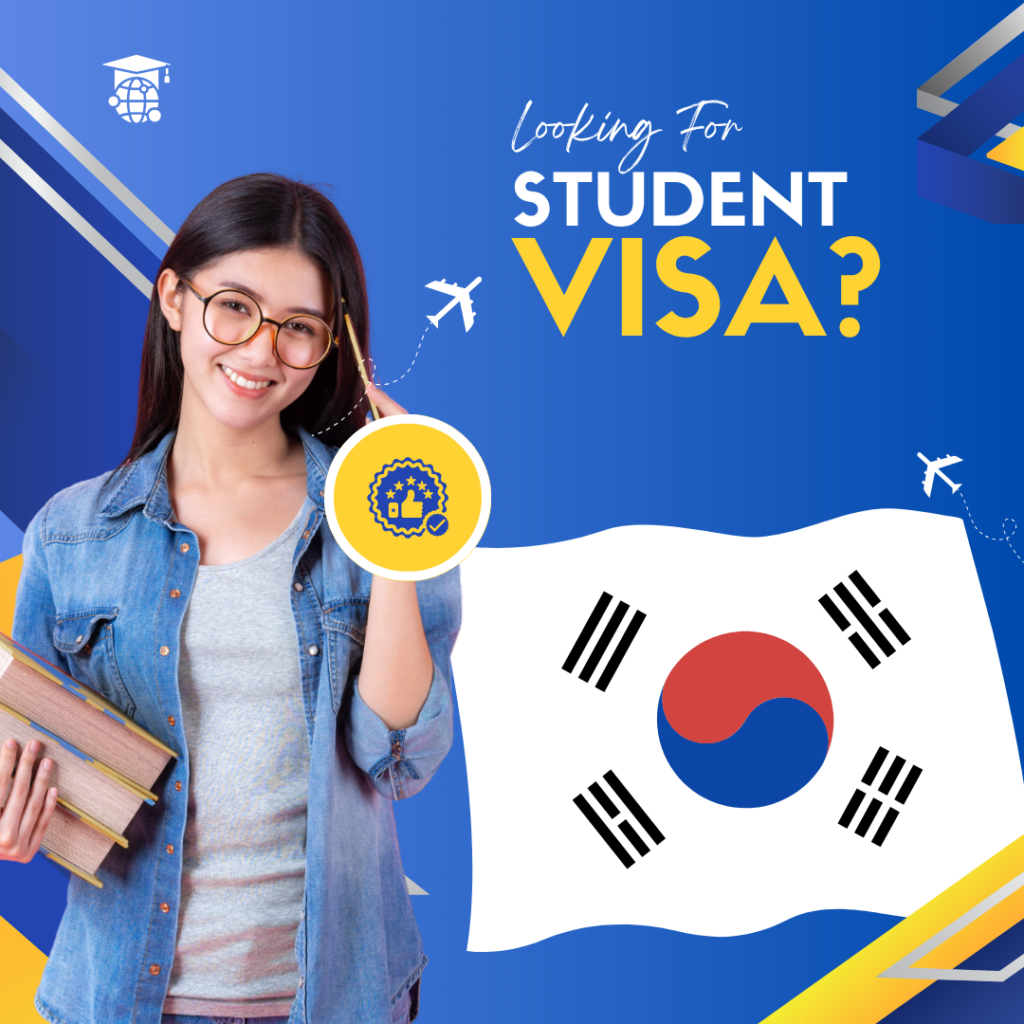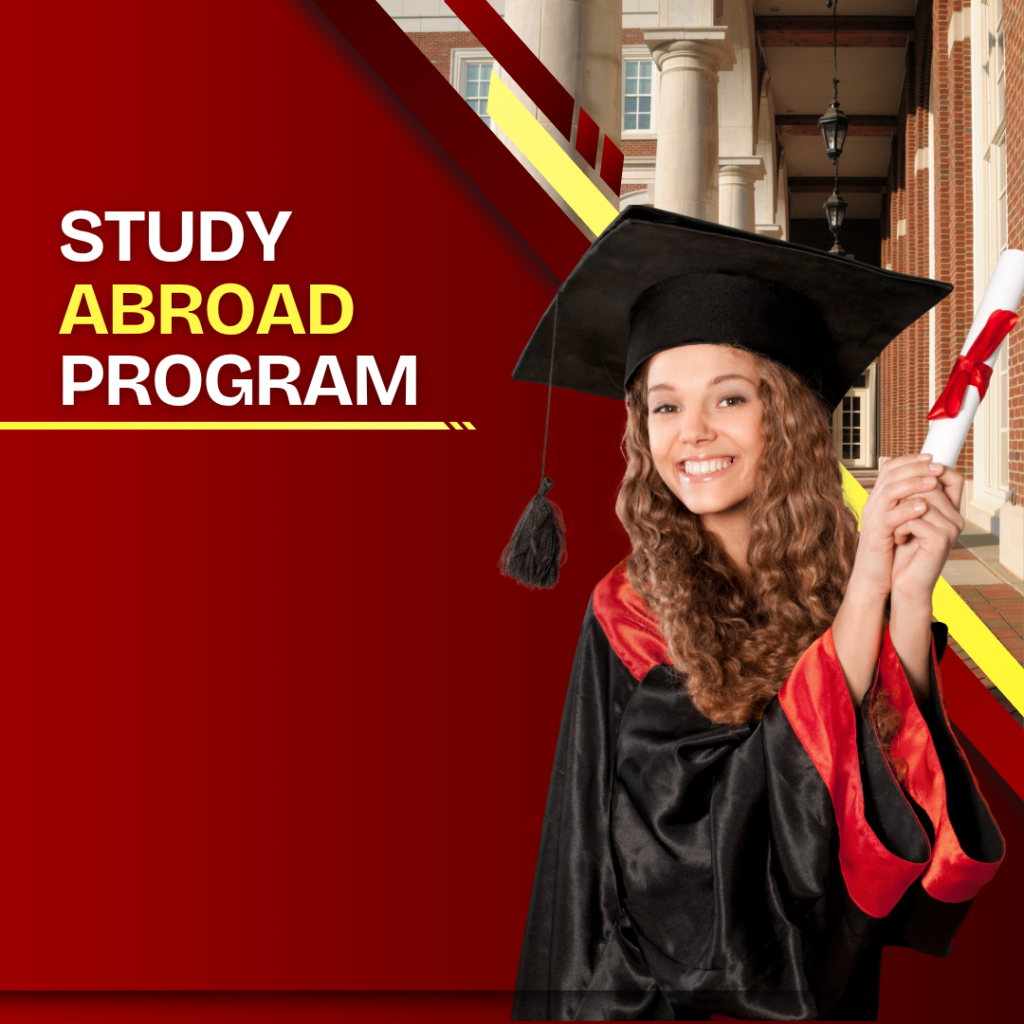10 Eligibility Criteria for Korea’s Student Visa

Introduction
Korea’s Student Visa is a vital document for international students who want to pursue their education in South Korea. Understanding the eligibility criteria for Korea’s Student Visa is essential for applicants to ensure a smooth and successful visa application process. Whether you are enrolling in a university, language school, or technical program, meeting the eligibility criteria is the first step toward studying in Korea.
In this article, we will walk you through the core eligibility requirements for Korea’s Student Visa, clarify common questions, and provide practical advice. Additionally, we will touch on how participating in a study abroad program can enhance your chances of obtaining the visa.
What is Korea’s Student Visa?
Korea’s Student Visa, commonly referred to as the D-2 visa, is issued to foreign nationals who intend to study at accredited educational institutions in South Korea. This visa allows students to stay legally in the country for the duration of their program and may include opportunities for limited work during studies.
Knowing the eligibility criteria for Korea’s Student Visa helps applicants prepare the necessary documents and meet legal standards to increase their chances of approval.
Core Eligibility Criteria for Korea’s Student Visa
1. Acceptance by an Accredited Institution
One of the primary eligibility criteria for Korea’s Student Visa is acceptance into a recognized educational institution. Applicants must have an official admission letter from a university, college, or language institute accredited by the Korean government.
Proof of acceptance demonstrates your genuine intent to study and is a prerequisite for your visa application.
2. Proof of Sufficient Financial Means
Applicants must prove that they have sufficient financial resources to support themselves while studying in Korea. This typically includes bank statements, scholarship letters, or financial guarantees.
Demonstrating financial stability reassures immigration officials that you can cover tuition fees, living expenses, and return travel without illegal work or financial distress.
3. Valid Passport
Having a valid passport with at least six months of validity beyond your intended stay is mandatory. Your passport must be original and not expired at the time of visa application.
Ensuring your passport validity meets the criteria avoids unnecessary delays or rejections.
4. Completed Visa Application Form
A properly filled visa application form is essential. Applicants must carefully complete all required sections, providing accurate personal information and details of their study program.
Inaccurate or incomplete forms can result in application rejection.
5. Passport-Sized Photographs
Recent passport-sized photos meeting the embassy’s specifications must accompany the application. These photos are used for identification and official documentation.
6. Academic Records and Transcripts
Providing certified academic transcripts and certificates is often required. These documents prove your educational background and preparedness for your intended program.
7. Statement of Purpose or Study Plan
Many Korean embassies request a statement of purpose explaining why you wish to study in Korea, your chosen program, and future plans. This document should be clear, concise, and demonstrate your motivation.
8. Clean Criminal Record
Some applicants may be required to provide a police clearance certificate or criminal background check to verify good conduct. This requirement varies by country and embassy.
9. Health Certificate
Applicants might need to submit a health certificate confirming they are free of infectious diseases. This ensures that international students do not pose public health risks.
10. Compliance with Immigration Policies
Finally, applicants must comply with all Korean immigration policies, including not having overstayed or violated visa terms in previous visits.
How Participation in a Study Abroad Program Affects Eligibility

Participating in a recognized study abroad program can enhance your eligibility for Korea’s Student Visa. Such programs often have established partnerships with Korean institutions, making the visa process smoother.
If you are enrolled in a study abroad program, ensure you have all the necessary documentation from the program coordinator. This can include acceptance letters, proof of enrollment, and program details that support your visa application.
Additional Considerations for Korea’s Student Visa Applicants
Language Proficiency
While not always mandatory, demonstrating Korean or English language proficiency can strengthen your application. Many universities require minimum language test scores as part of their admission process.
Visa Interview
Depending on your country of origin, you may be required to attend an interview at the Korean embassy or consulate. Preparing for common questions about your study goals and plans in Korea is recommended.
Visa Fees
Applicants should be aware of visa processing fees and payment methods. Keep receipts and proof of payment for submission.
Work Rights on Korea’s Student Visa
Korea’s Student Visa often allows part-time work under specific conditions. Knowing these rules and staying compliant is crucial to maintain visa status.
Common Challenges in Meeting Korea’s Student Visa Eligibility Criteria
- Incomplete Documentation: Failing to provide all required documents can delay or deny your application.
- Insufficient Financial Proof: Not adequately demonstrating funds may raise doubts about your ability to support yourself.
- Unclear Study Purpose: Vague or inconsistent statements can reduce confidence in your genuine student intent.
- Language Barriers: Misunderstandings during interviews or form completion can impact results.
- Previous Immigration Violations: Past overstays or visa breaches can complicate new applications.
Preparing carefully for these challenges improves your chances of approval.
Tips for Successfully Meeting Korea’s Student Visa Eligibility Criteria
- Start your application well in advance of your program start date.
- Gather all documents early and have them translated if needed.
- Consult your chosen institution’s international office for guidance.
- Practice your visa interview responses to confidently explain your study plans.
- Ensure your finances are transparent and verifiable.
- Stay updated on immigration policies through official Korean government websites.
Conclusion
Korea’s Student Visa is your gateway to pursuing education in one of Asia’s most dynamic countries. Understanding and meeting the eligibility criteria for Korea’s Student Visa is fundamental to a successful application.
By preparing your documents carefully, demonstrating your genuine intent, and aligning with a recognized study abroad program, you position yourself for a smooth process. Remember to stay organized, start early, and seek support when needed.
This journey not only opens doors to quality education but also offers rich cultural experiences and personal growth. With proper planning around Korea’s Student Visa eligibility criteria, you can confidently take the first step toward your academic future in Korea.